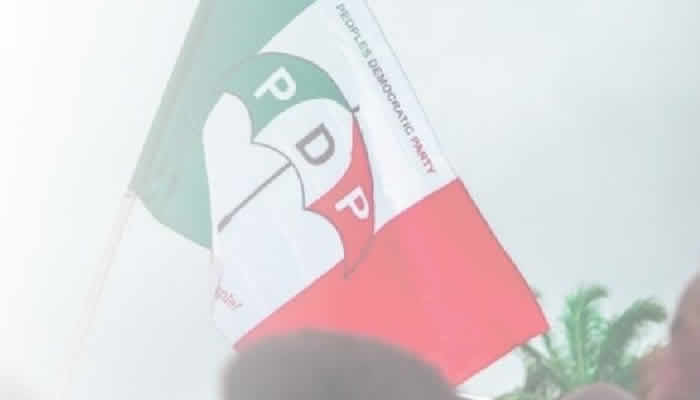The Peoples Democratic Party (PDP) stands at a critical juncture, poised to navigate a complex landscape of internal politics as it prepares for its National Elective Convention in November. The party’s National Executive Committee (NEC) is set to receive the report of its zoning committee, a crucial step in determining the distribution of power within the party’s National Working Committee (NWC). The committee, tasked with allocating the 19 NWC offices between the North and South, has reportedly recommended maintaining the existing zoning formula. This decision, while seemingly preserving the status quo, has the potential to both appease and aggravate existing factions within the party. The NEC’s anticipated ratification of this report will set the stage for the upcoming convention, a crucial event that will shape the party’s leadership and its future trajectory.
The existing zoning arrangement has already been partially implemented in the South, where key positions have been allocated to different geopolitical zones. The South-South secured the Deputy National Chairman and National Publicity Secretary roles, the South-West received the National Secretary and National Auditor positions, and the South-East was assigned the Deputy National Secretary and Financial Secretary roles. This micro-zoning within the South, influenced by figures like Governor Seyi Makinde, has further solidified specific positions within particular states, such as the National Secretary being designated for Oyo State and the Publicity Secretary slot for Akwa Ibom. While this provides a degree of clarity in the South, the North is yet to finalize its internal distribution of offices, a process expected to commence following the NEC’s decision.
However, the path towards the convention is fraught with internal discord. Former Rivers Governor and current FCT Minister, Nyesom Wike, represents a significant voice of dissent. Wike has issued warnings about potential repercussions if the outcome of the South-South Congress in Calabar is disregarded, arguing that unresolved internal disputes could lead to a full-blown crisis. This warning highlights the fragility of the current peace within the PDP and underscores the importance of carefully managing the zoning process. Wike’s concerns are echoed by some of his loyalists in the South, who have rejected the micro-zoning meeting held in Lagos, further complicating the party’s efforts to achieve unity.
Despite these internal tensions, the party’s youth leaders have expressed their unwavering support for the NEC’s decisions on zoning and the Ibadan convention. Their endorsement offers a counterpoint to Wike’s dissent and provides a degree of optimism for the party’s ability to navigate these challenges. The youth leaders’ affirmation of the current leadership, including the acting NWC, the Board of Trustees (BOT), and the PDP Governors’ Forum, reinforces the message of unity and stability within the party. Their call for aggrieved members to remain within the PDP underscores the importance of internal cohesion as the party seeks to present a united front against the ruling All Progressives Congress (APC).
The NEC meeting, therefore, becomes a pivotal moment for the PDP. The adoption of the zoning report is not merely a procedural step; it is a symbolic act with far-reaching implications. It represents an attempt to balance competing interests, address internal grievances, and project an image of stability and unity. The party leadership hopes that this decision will pave the way for a successful convention in November, allowing the PDP to focus its energies on challenging the APC and presenting itself as a viable alternative to the current government. The success of this strategy, however, hinges on the party’s ability to effectively manage internal dissent and maintain a cohesive front.
The PDP’s future hinges on its ability to navigate these complex internal dynamics. The upcoming convention is not merely about electing new leaders; it is about defining the party’s identity, solidifying its internal structure, and charting a course for the future. The decisions made in the coming weeks will have a profound impact on the party’s ability to compete effectively in the political landscape and present a credible challenge to the ruling party. The party must effectively address internal grievances, foster unity, and project an image of stability if it is to capitalize on the current political climate and position itself as a viable alternative to the APC. The NEC meeting and the subsequent convention represent a crucial test of the PDP’s ability to achieve this delicate balance and emerge stronger and more unified.


